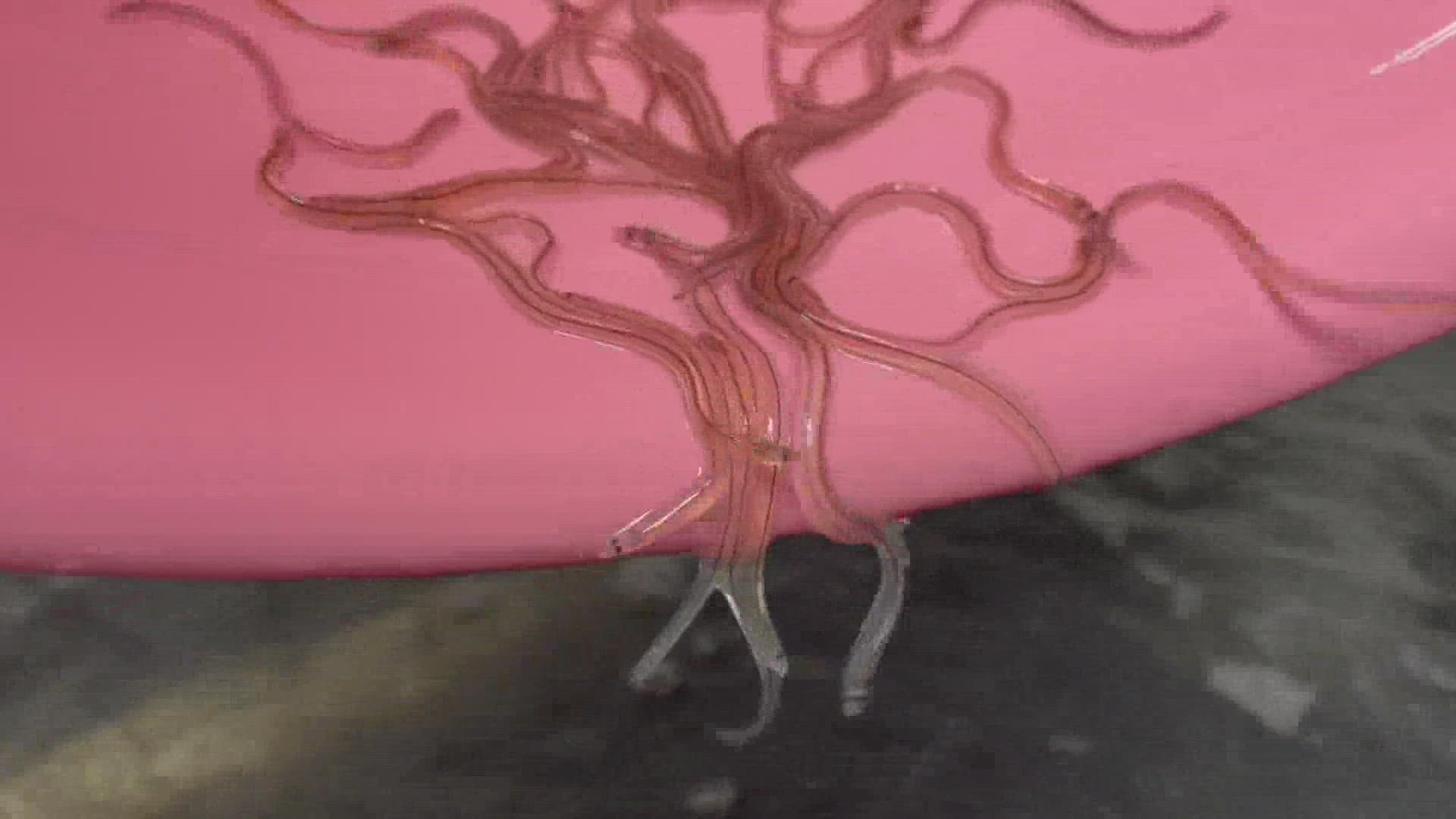PORTLAND, Maine — EDITOR'S NOTE: The video above aired on April 15, 2022.
Maine's baby eel fishing industry is wrapping up one of the most successful seasons in its history.
Maine is the only state in the country with a significant fishery for baby eels, which are also called elvers. The elvers are sold to Asian aquaculture companies that raise them to maturity for use as food.
Fishermen have just about tapped out the season's quota of about 9,300 pounds of eels, state regulators said. The eels were worth nearly $20 million at the docks, with a per-pound price of $2,162, regulators said Monday.
The per-pound price was the third highest in state history, and the total value was at least the fifth highest, state records show.
The season also represented a rebound from 2020, when prices sank to $525 per pound due to disruption caused by the COVID-19 pandemic. Members of the industry have said the re-emergence of global trade has helped the industry grow in value. Last year's totals were much improved from 2020.
The elvers are commonly used in sushi. Some return to the U.S. for use in Japanese restaurants.
"This season has been the most incredibly unique," John Kerry, owner of International Seafood Harvesting in Portland, told NEWS CENTER Maine last month. "This has been one of the earliest seasons in memory because the elvers came early due to wind currents, ocean currents, weather, and the season has been a very rapidly developing season."
Kerry and his son, Ryan, have been buying elvers off fishers around the state and selling them to Japan for the last eight years.
"You can't underscore it that this has been good for the Maine economy. This helps fishermen, this helps their families, this helps all the persons that supply them, and it helps everyone in the state of Maine," Kerry said.
The Maine Legislature works with the Atlantic States Marine Fisheries Commission every year to decide on quotas, or limits, for eel fishers.
"I think we've been very supported by the government, as well as the fishing industry as a whole. And I think that’s been good for Maine fishermen," Kerry said.
Meanwhile, Jason Bartlett, a scientist with the Maine Department of Marine Resources, is in the middle of a 17-year long study on eel life cycles and said just because this season was good doesn't guarantee next year will be the same.
"My take-home point would be, this is a really good year, [but] last year was really different. The quota wasn't actually filled last year. It varies year to year. It's very hard to predict what will even happen next year," Bartlett said.
Bartlett added that while the quota system is good, the industry's future is always changing.
"I think in time, it's going to be a bigger conversation," he said. "Like I said, there’s a lot more to eels going on than just the elver fishery. But you know climate change ... could lead to some changes in the future."
For the latest breaking news, weather, and traffic alerts, download the NEWS CENTER Maine mobile app.

